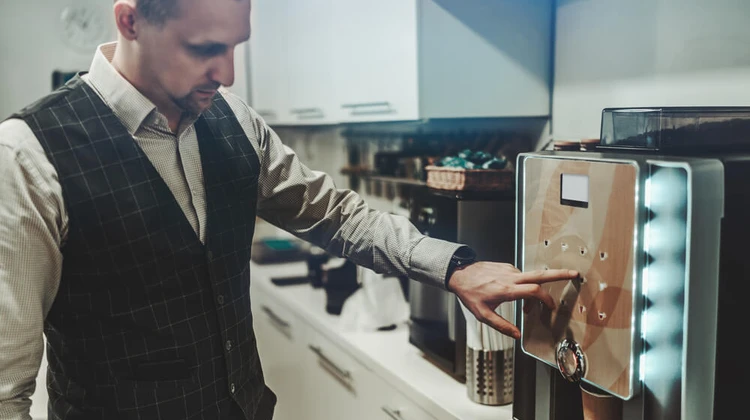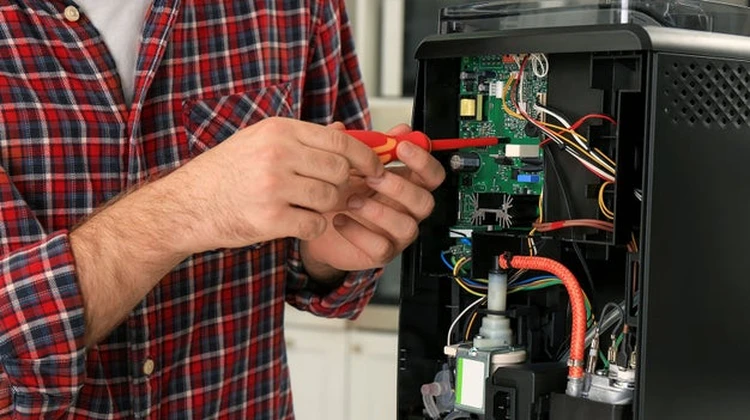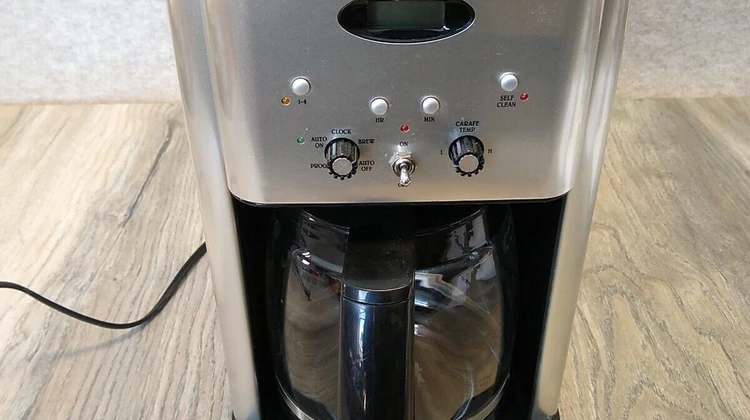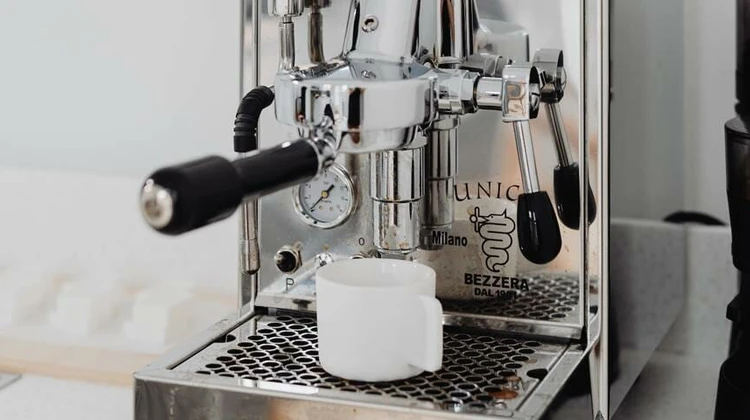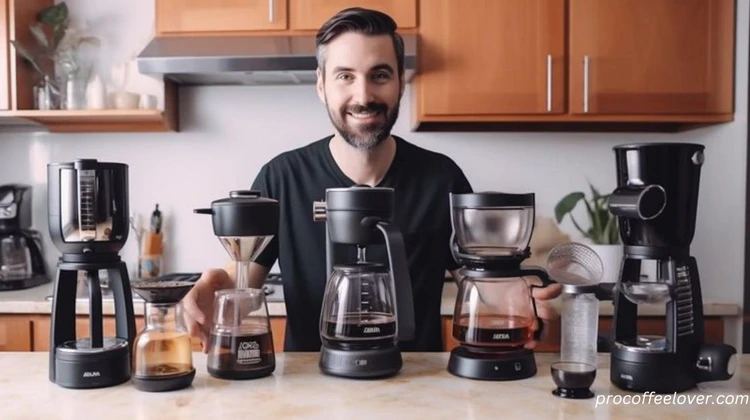Disclaimer: As an Amazon Associate, I earn commission from qualifying purchases.
The morning routine for many homeowners and renters often begins with a fresh cup of coffee. However, a slow coffee maker can disrupt this routine, causing frustration and delays. Efficient kitchen appliances are essential for a smooth daily flow, and understanding why your coffee maker is operating slowly can help you address the issue effectively.
With over a decade of experience in the kitchen appliance industry, I have encountered numerous cases where a slow coffee maker has been the source of daily inconvenience. In this article, we will explore the common reasons behind this issue and provide actionable solutions to enhance your coffee maker’s performance.
Common Reasons for a Slow Coffee Maker
If you’re wondering, “why is my coffee maker so slow,” you’re not alone. Several factors can contribute to this problem. Mineral buildup, clogged filters, and outdated models are among the most common culprits. A study by the National Coffee Association found that over 60% of coffee maker issues are related to mineral buildup and clogged components. Understanding these issues can help you pinpoint the exact cause and take appropriate action.
The Role of Mineral Buildup
Hard water, which contains high levels of minerals like calcium and magnesium, can lead to mineral buildup in your coffee maker. This buildup can clog the internal components, affecting the machine’s performance and efficiency. According to a report by the Water Quality Association, hard water can reduce the lifespan of kitchen appliances by up to 30%.
To address why your coffee maker is so slow due to mineral buildup, regular descaling is essential. Descaling involves using a solution to break down and remove mineral deposits, restoring your coffee maker’s efficiency.
Clogged Filters and Their Impact
Clogged filters are another common reason for a slow coffee maker. Over time, coffee grounds and mineral deposits can accumulate in the filter, restricting water flow and reducing brewing speed. To address this issue, follow these steps:
- Remove the Filter: Start by unplugging your coffee maker and removing the filter.
- Clean the Filter: Use a soft brush or cloth to remove any visible debris. For a deeper clean, soak the filter in a mixture of water and vinegar for about 30 minutes.
- Replace if Necessary: If the filter is heavily damaged or worn out, consider replacing it with a new one. Appliance experts recommend following the manufacturer’s guidelines for filter replacement to ensure optimal performance.
Outdated Models and Efficiency
Outdated coffee maker models can also contribute to slow performance. Older models may lack the advanced features and efficiency of newer ones. For instance, modern coffee makers often come with automatic cleaning cycles and better heating elements.
A comparison between older and newer models shows that upgrading can offer significant benefits, including faster brewing times and improved energy efficiency. Industry publications highlight that newer models can brew coffee up to 50% faster than their older counterparts.
Best Practices for Coffee Maker Maintenance
Maintaining your coffee maker is crucial for ensuring its longevity and efficiency. Here are some best practices:
- Regular Cleaning: Clean your coffee maker at least once a month to prevent mineral buildup and clogged filters.
- High-Quality Water: Use filtered or softened water to minimize mineral deposits.
- Descaling: Descale your coffee maker every 3-6 months to remove any accumulated minerals.
- Follow Manufacturer Guidelines: Always refer to the manufacturer’s instructions for specific maintenance tips.
Step-by-Step Guide to Cleaning Your Coffee Maker
Cleaning your coffee maker involves several steps to ensure thorough descaling and sanitization:
- Prepare the Descaling Solution: Mix equal parts of water and white vinegar.
- Run a Brewing Cycle: Pour the solution into the water reservoir and run a brewing cycle without any coffee grounds.
- Rinse Thoroughly: After the cycle, discard the solution and run two more cycles with plain water to rinse out any remaining vinegar.
- Clean External Components: Wipe down the exterior and any removable parts with a damp cloth.
Optimizing Water Quality for Better Performance
The quality of water you use can significantly impact your coffee maker’s performance. Hard water can lead to mineral buildup, while poor-quality water can affect the taste of your coffee. Academic studies have shown that using filtered or softened water can prevent mineral buildup and enhance the overall performance of your coffee maker. By optimizing water quality, you can address why your coffee maker is so slow and improve its efficiency.
Product Recommendations for Enhanced Efficiency
Several products can help improve your coffee maker’s performance:
- Water Filters: A high-quality water filter can remove impurities and minerals from tap water, preventing buildup.
- Descaling Solutions: Specialized descaling solutions are designed to break down mineral deposits effectively.
- High-Quality Coffee Beans: Using fresh, high-quality coffee beans can enhance the brewing process and improve the taste of your coffee.
The Importance of Regular Descaling
Descaling is a critical process for maintaining your coffee maker’s efficiency. Industry experts recommend descaling every 3-6 months, depending on the hardness of your water and the frequency of use. Descaling helps remove mineral deposits, ensuring that your coffee maker operates at its peak performance. Regular descaling can also extend the lifespan of your coffee maker, saving you money in the long run.
Troubleshooting Common Coffee Maker Issues
Troubleshooting common issues can help you identify and resolve why your coffee maker is so slow. Follow these steps:
- Check for Mineral Buildup: Inspect the internal components for any visible mineral deposits.
- Inspect the Filter: Ensure the filter is clean and free of debris.
- Test the Heating Element: If the coffee maker is still slow, the heating element may be faulty and need replacement.
Sustainable Practices for Kitchen Efficiency
Adopting sustainable practices can improve overall kitchen efficiency and reduce waste:
- Reduce Water Usage: Use the exact amount of water needed for brewing to conserve water.
- Energy Conservation: Unplug the coffee maker when not in use to save energy.
- Reusable Filters: Opt for reusable filters to minimize waste.
Case Studies: Real-Life Examples of Coffee Maker Optimization
Real-life examples can provide valuable insights into optimizing coffee maker performance. For instance, a homeowner who experienced slow brewing times discovered that regular descaling and using filtered water significantly improved their coffee maker’s efficiency. By following these practices, they were able to enjoy a faster brewing process and better-tasting coffee.
FAQs
Why is mineral buildup a common issue with coffee makers?
Mineral buildup occurs due to the presence of minerals in hard water, which can accumulate over time and clog the coffee maker. This buildup can restrict water flow and reduce the efficiency of the heating element, leading to slower brewing times and potentially affecting the taste of your coffee. Regular descaling is essential to remove these mineral deposits and maintain optimal performance.
How often should I descale my coffee maker?
Descaling should be done every 3-6 months, depending on the hardness of your water and the frequency of use. If you live in an area with hard water, you may need to descale more frequently. Regular descaling helps prevent mineral buildup, ensuring that your coffee maker operates efficiently and extends its lifespan. Always refer to the manufacturer’s guidelines for specific descaling instructions.
Can using bottled water improve coffee maker performance?
Yes, using bottled water can reduce mineral buildup and improve performance, but it may not be the most sustainable option. Bottled water is typically free of the minerals found in hard water, which can help prevent buildup and maintain the efficiency of your coffee maker. However, bottled water can be expensive and environmentally unfriendly due to plastic waste. A more sustainable alternative is to use a water filter or softener to improve water quality.
What are the signs that my coffee maker needs cleaning?
Signs that your coffee maker needs cleaning include slow brewing, weak coffee, and unusual noises. If you notice that your coffee maker is taking longer than usual to brew, or if the coffee tastes weak or has an off flavor, it may be a sign of mineral buildup or clogged filters. Regular cleaning can prevent these issues and ensure that your coffee maker operates efficiently. It is recommended to clean your coffee maker at least once a month.
Is it worth upgrading to a newer coffee maker model?
Upgrading to a newer coffee maker model can offer improved efficiency and additional features, but it depends on your budget and specific needs. Newer models often come with advanced features such as automatic cleaning cycles, better heating elements, and programmable settings. These features can enhance performance and improve the overall coffee-making experience. However, if your current coffee maker is still functional, regular maintenance and descaling can help extend its lifespan and improve its efficiency.
Conclusion
In conclusion, addressing why your coffee maker is so slow involves understanding the common issues and taking appropriate action. Regular maintenance, including descaling and filter cleaning, is essential for ensuring optimal performance. Upgrading to a newer model can also offer significant benefits, but it depends on your specific needs and budget.
By following the best practices and using high-quality water, you can enhance your coffee maker’s efficiency and enjoy a faster, more enjoyable brewing experience.

